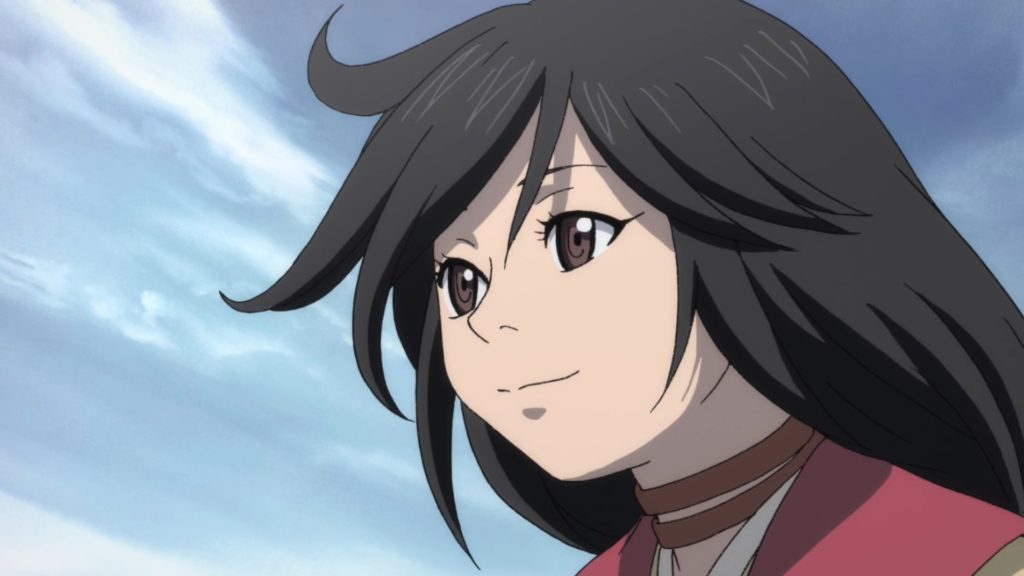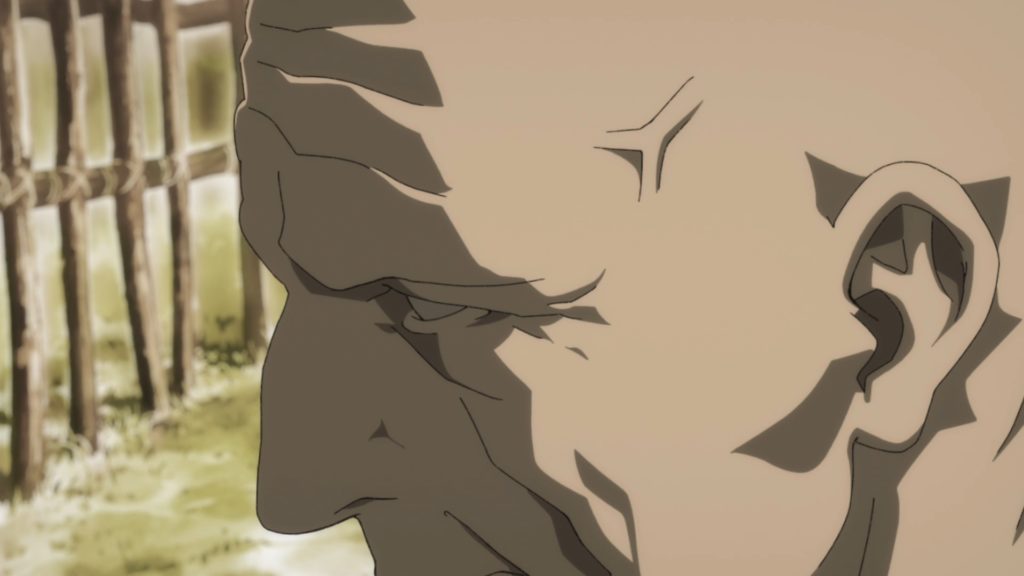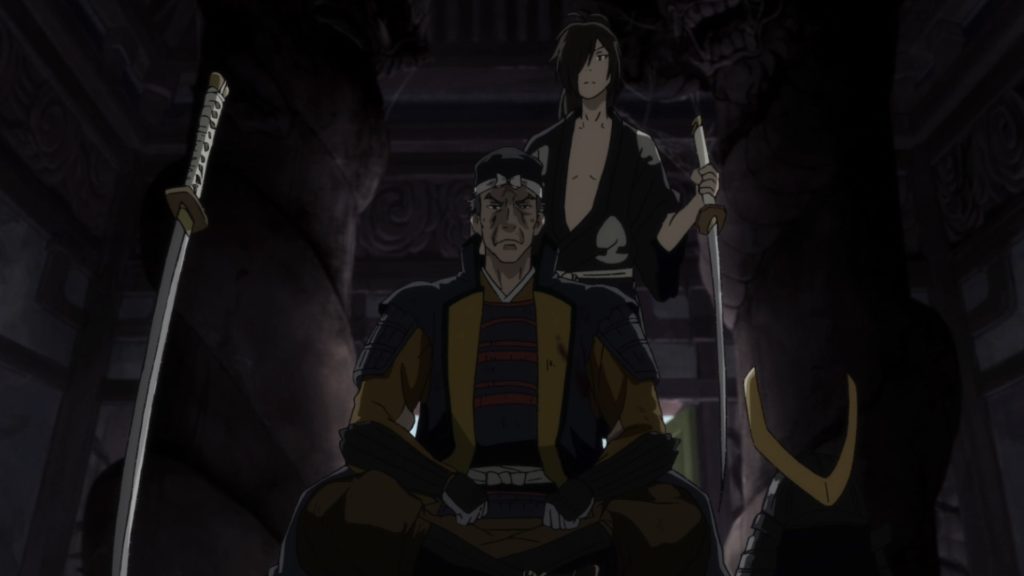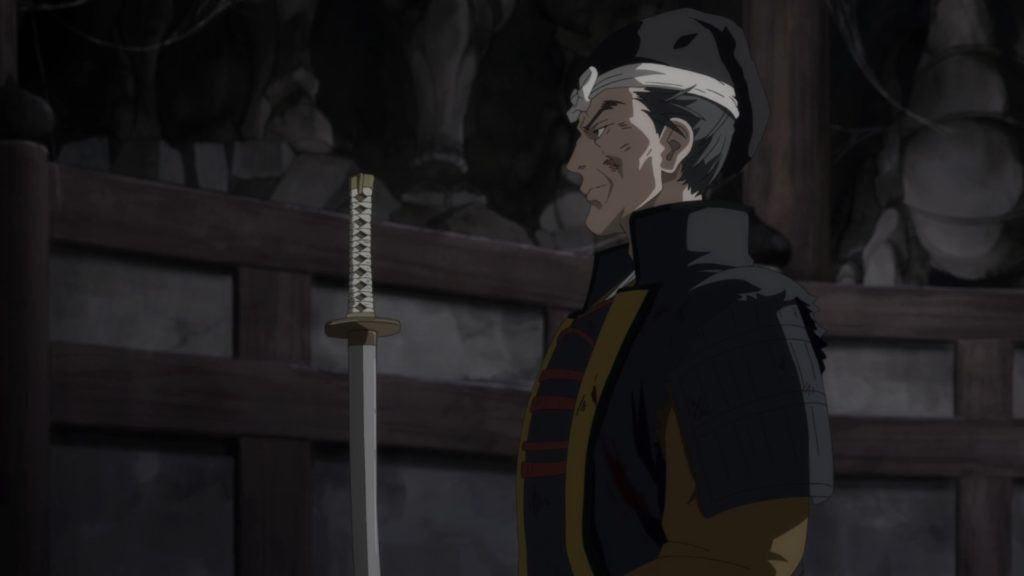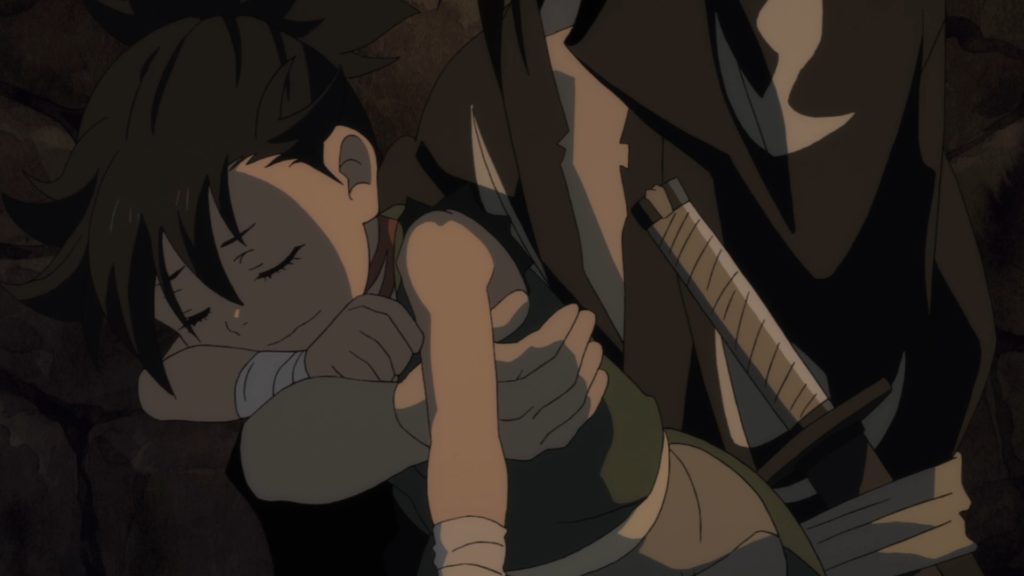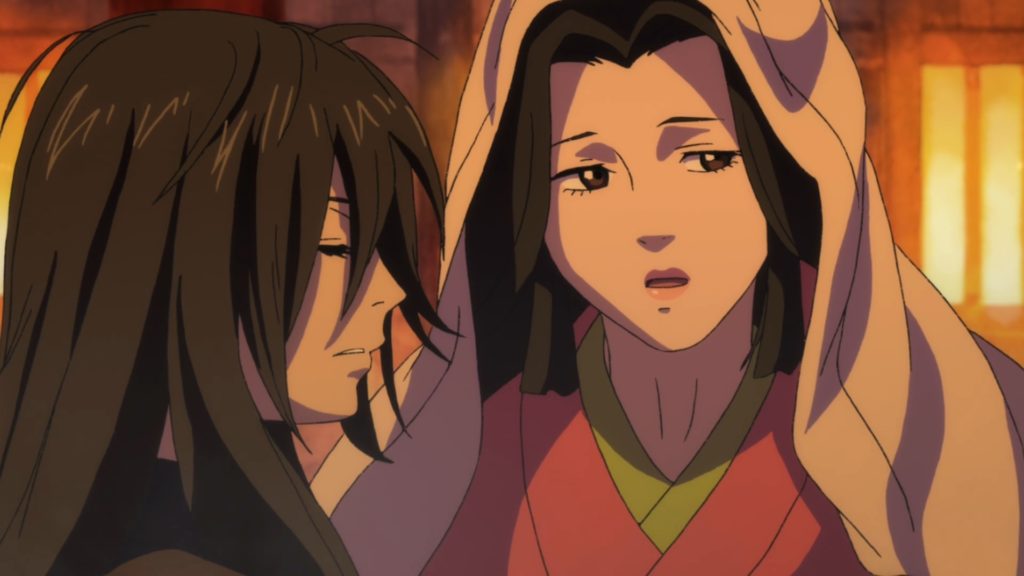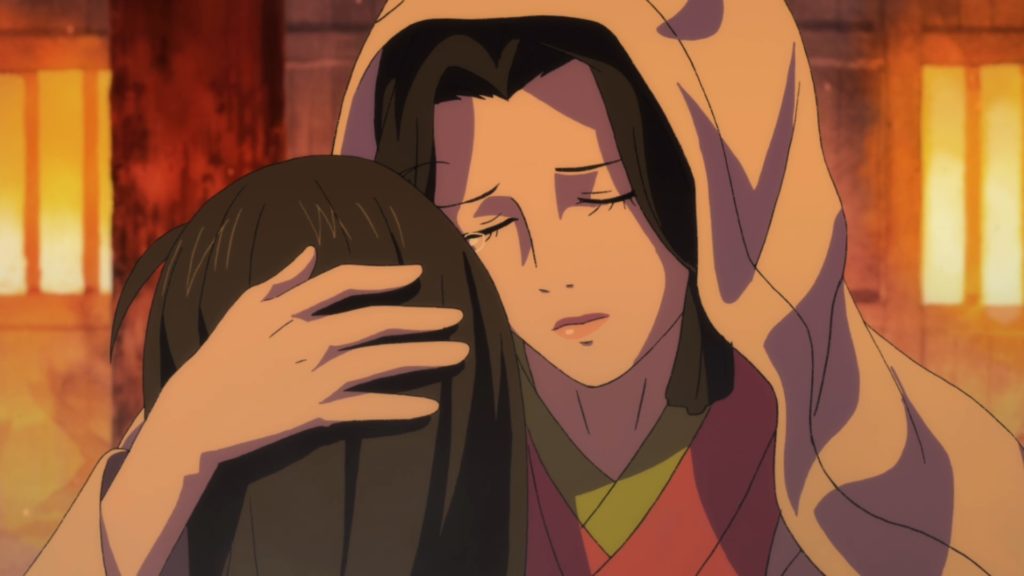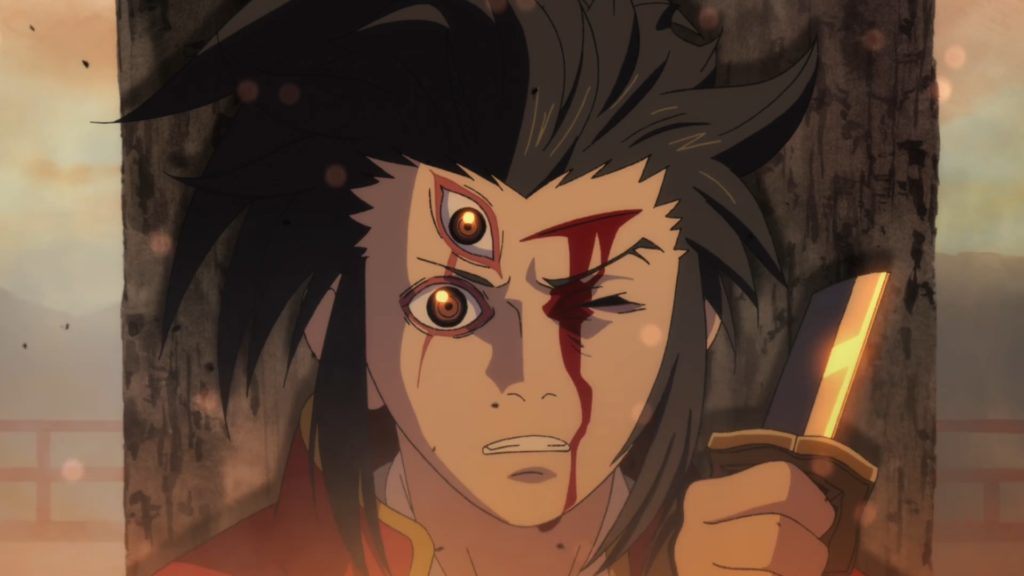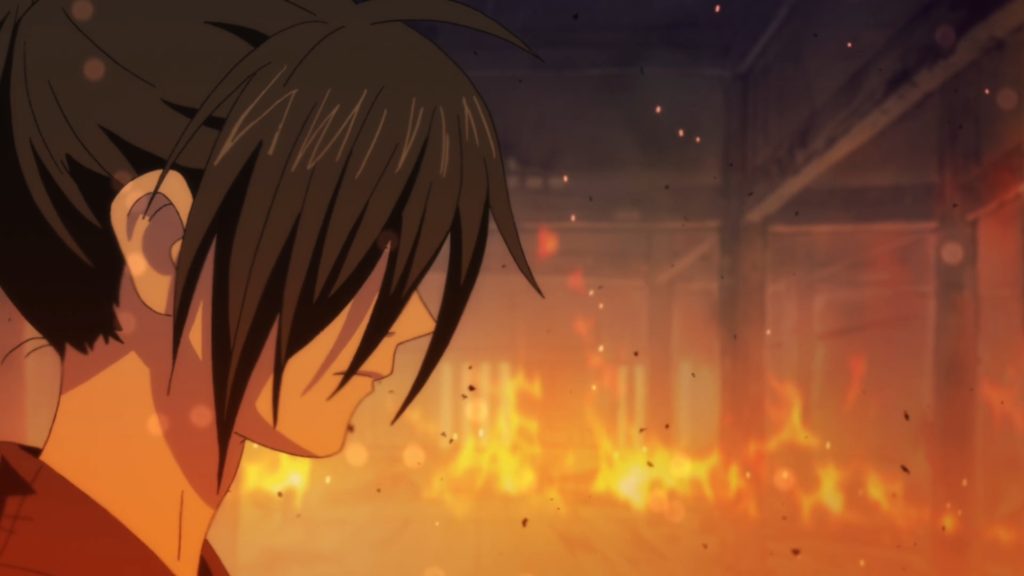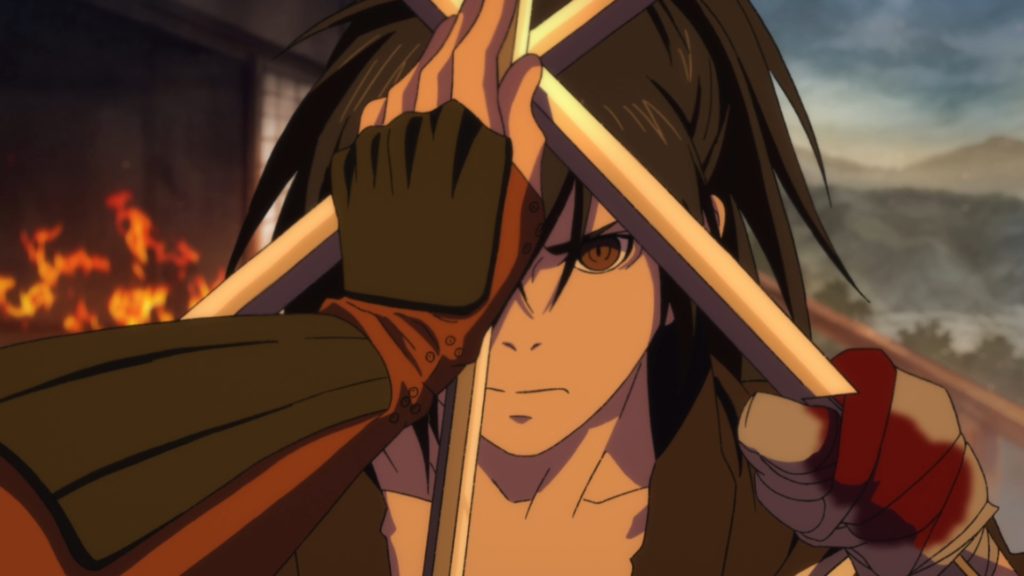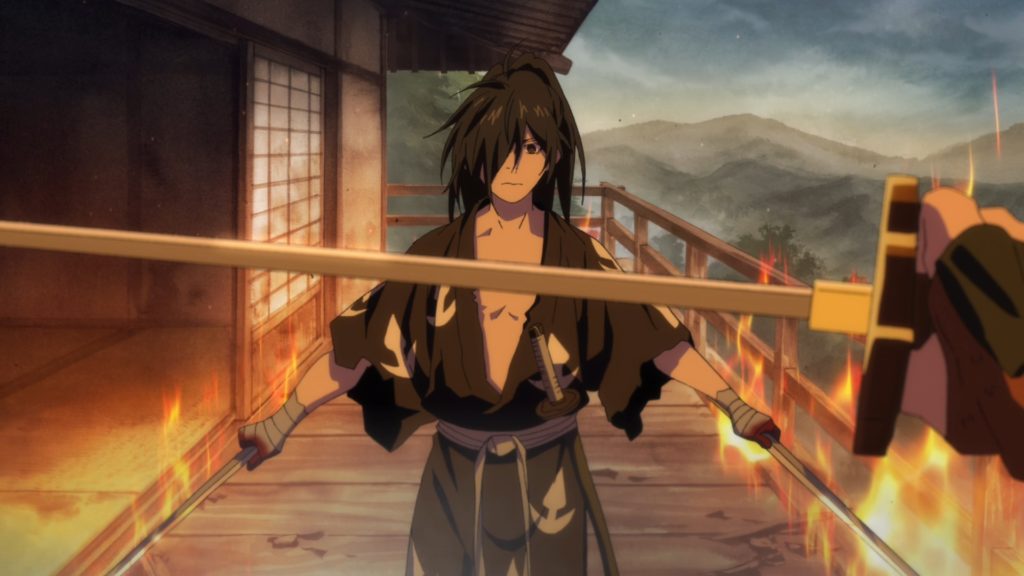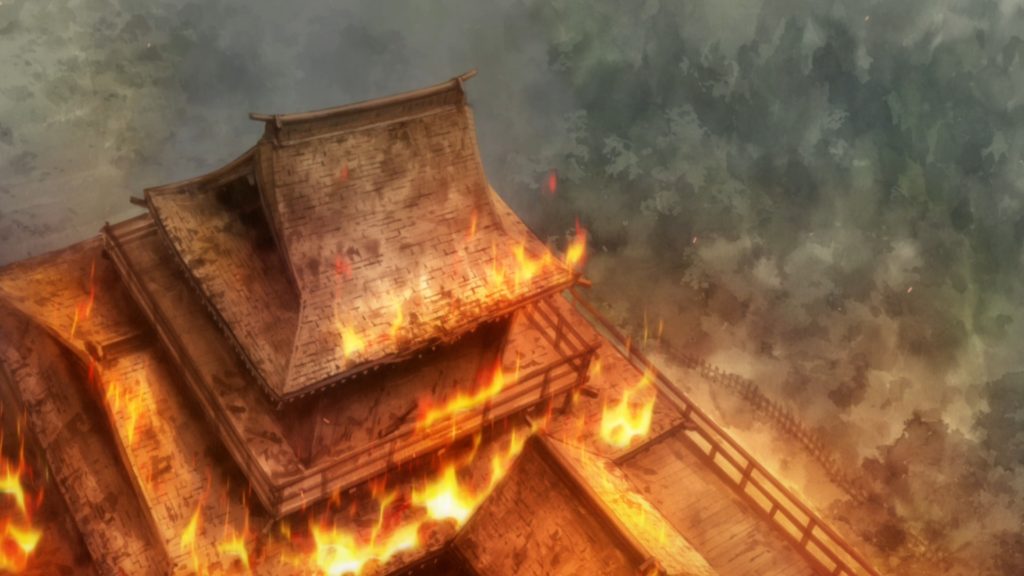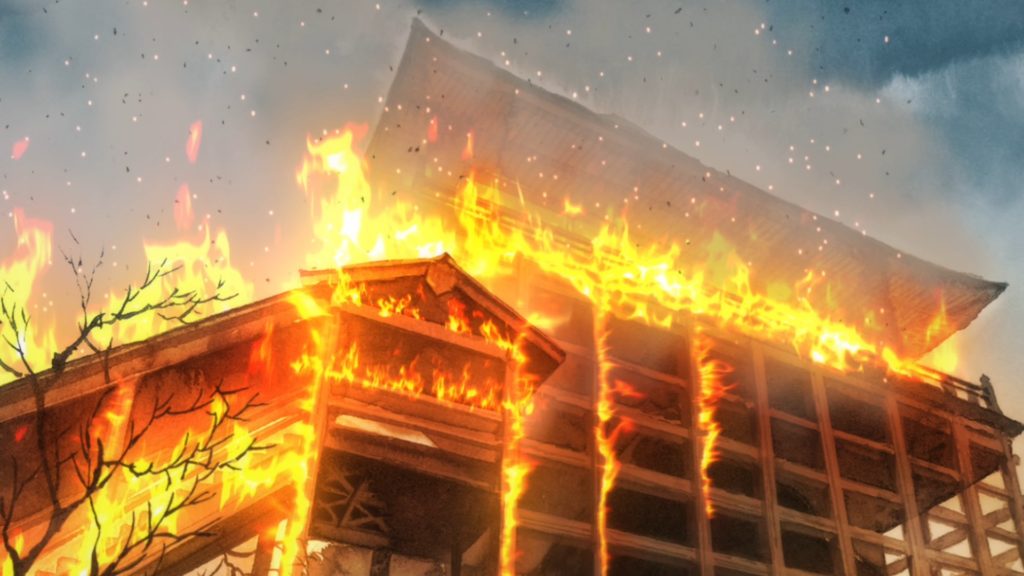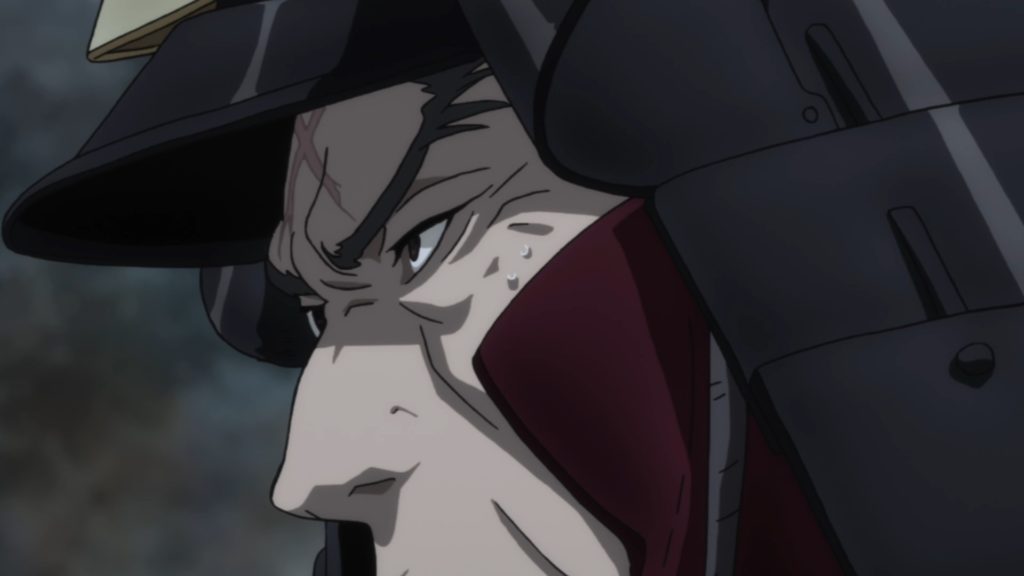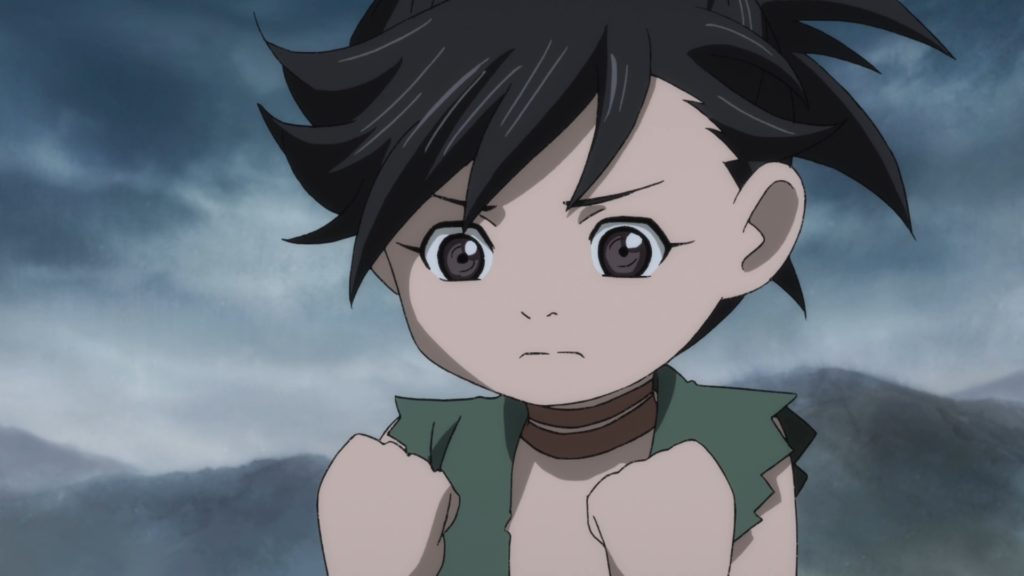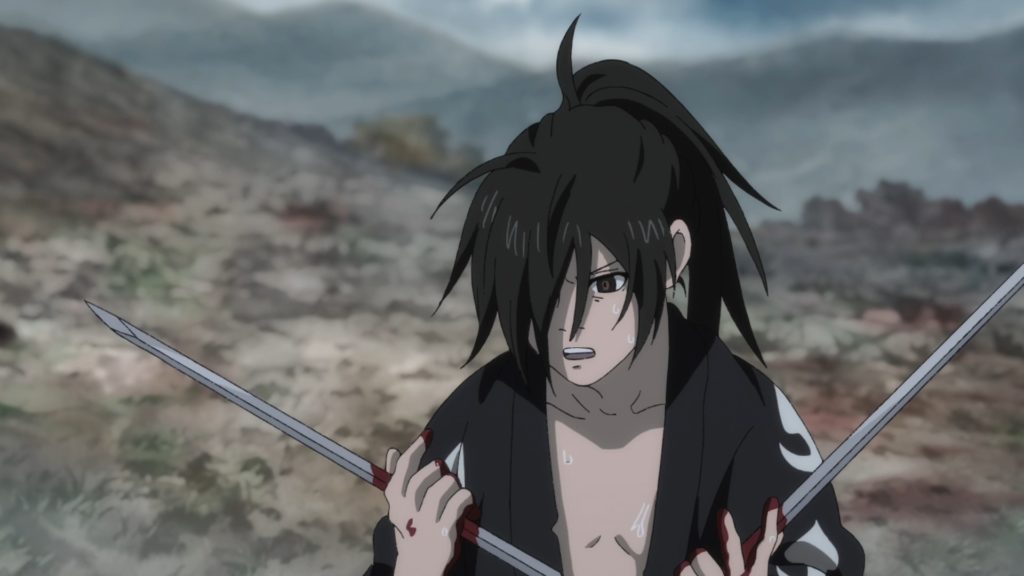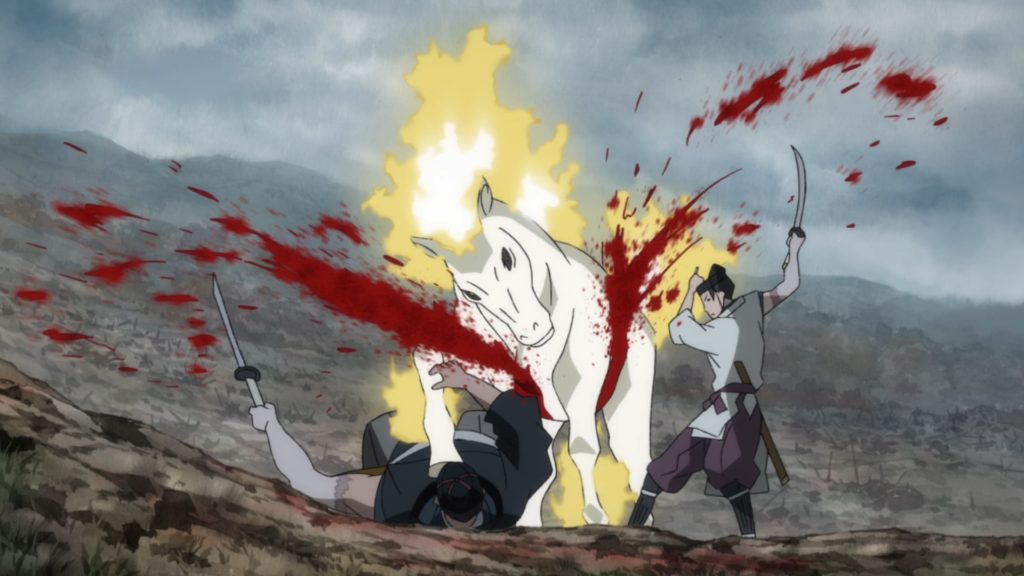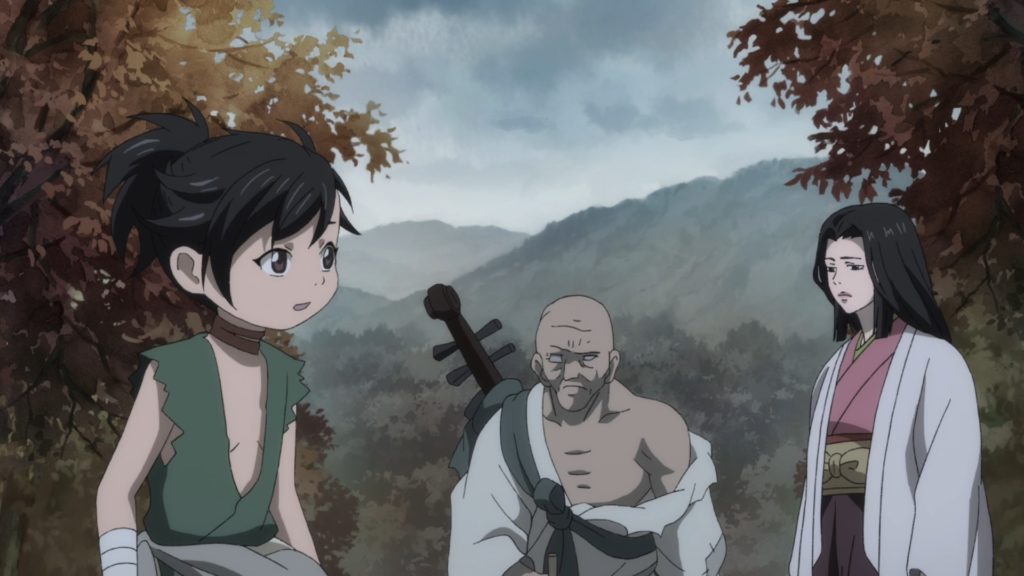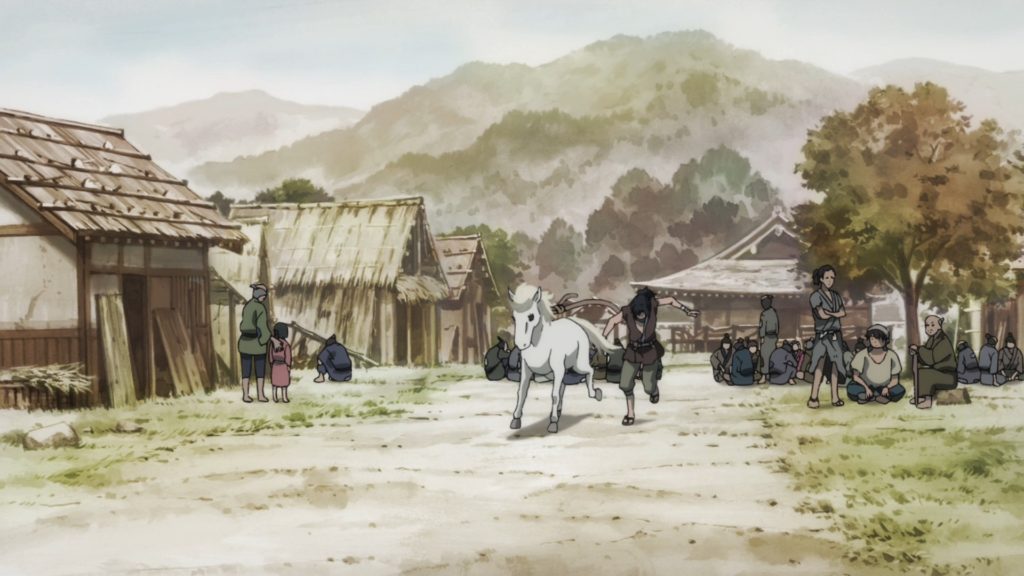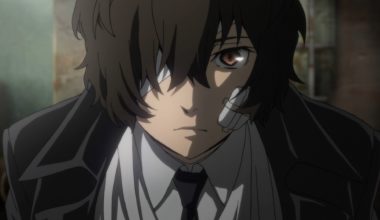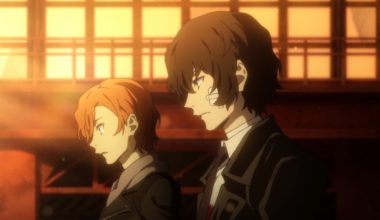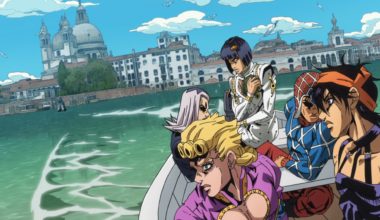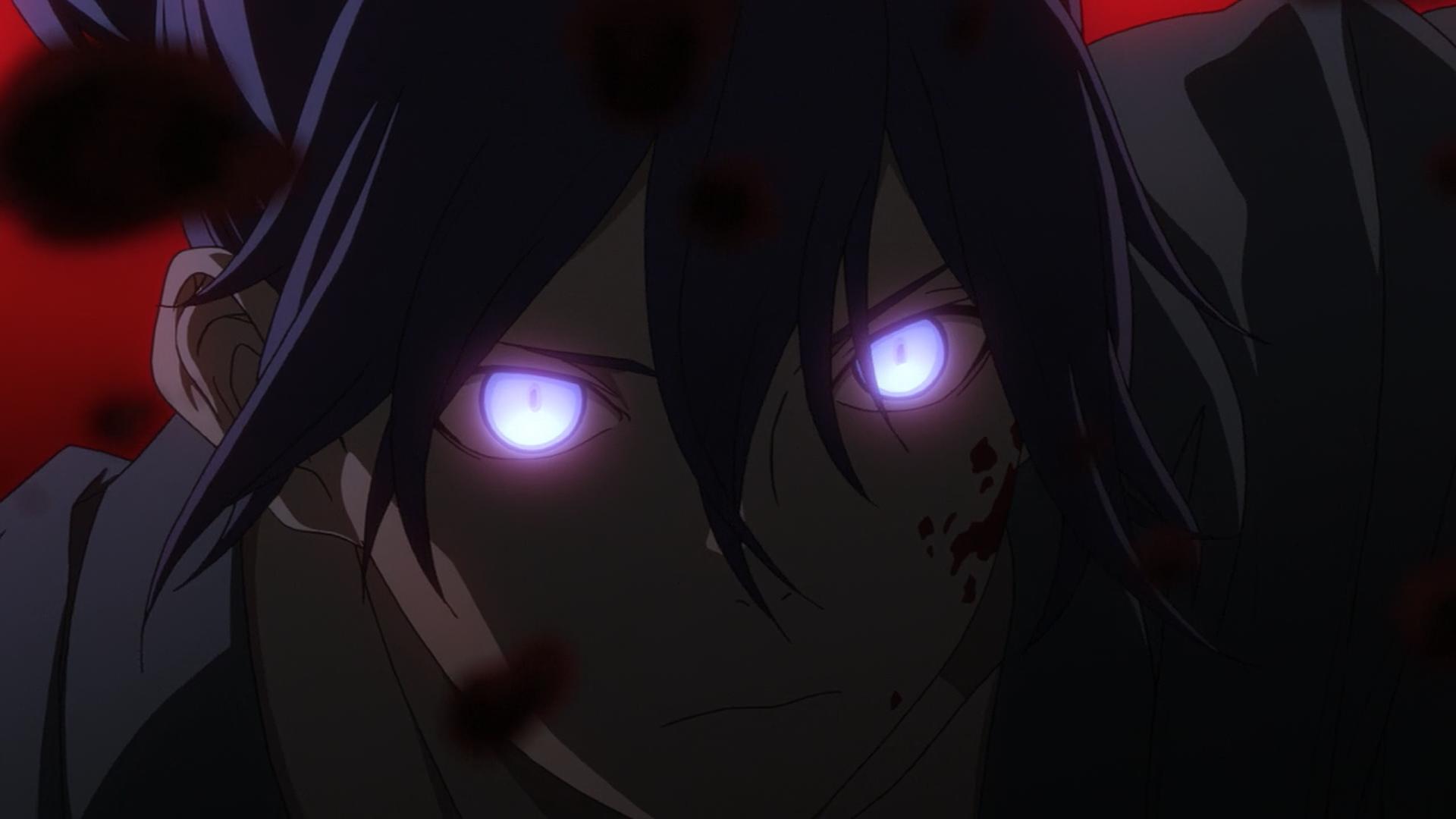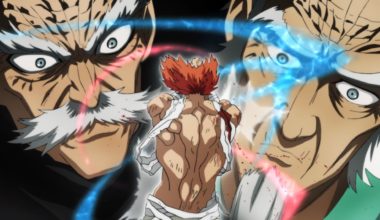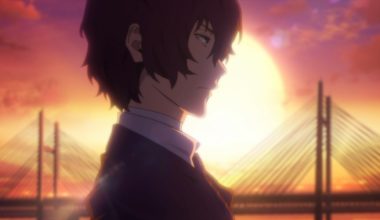Happy fourth of July everyone, let’s talk about something that’s very non-american.
It’s been very clear that the central conflict in this show (or rather, the way that the central conflict and ideologies manifest) is the never-ending battle between Hyakkimaru and Tahomaru. As previously mentioned, there is more to the battle than simply incapacitating the other – it’s a personification of the choice that the country of Daigo made to sacrifice their kin for a faux peace vs Hyakkimaru’s desire to reclaim what was stolen from him. The show appears content with the resolution of “might makes right” in regards to the outcome. Where does Tezuka stand on the matter?
I think his viewpoint comes out from the kindly priest, who believes that a peace brought from the unwilling sacrifice of one is a very fragile peace. I think Tezuka’s message is that we cannot entrust the future to anyone but ourselves – we can’t just sit and complain, or wait for someone to come save us, we must forge that future ourselves. You see this in Dororo’s comments as she mentions that all they do is wait for the samurai to change the landscape of their world, whether for the better or the worse. If they are to change the world, the land of Daigo, they must do so with their own two hands and hard work. Considering the way the narrative was framing Hyakkimaru’s choices, I’m pleasantly surprised that they came to such a reasonable, humane, responsible solution and viewpoint.
There’s also the other metaphor, which is a little bit more on the nose – looking human or having a human body isn’t what makes us human. It’s our behavior, the way we treat one another, the way we act.
Dororo also makes a point in great detail about this, though – our choices are what shape us, and we can’t outrun the evil we may perpetuate. Hyakkimaru has killed many humans on the quest to become human, and for taking human life he has also paid a price: the mental anguish has caused him to forsake Dororo and all others on a quest to find himself. Dororo seems to be content to wait for him – I know he will come back eventually for you, Dororo.
Hyakkimaru’s brother, mother, and adoptive father paid the ultimate price for their misgivings in their life. Considering the heavy buddhist overtones in the show and the era, it’s not unlikely that this is related to the buddhist idea of karma and paying one’s consequences for their actions. I’d argue that the doll man is the least culpable and the most tragic, but no doubt he believes himself an instrument for Hyakkimaru’s rage and animosity. What is most poignant are his parting words to Hyakkimaru – You must live. It sounds basic, but what a profound statement.
You must live. That’s really all we can keep doing – we will fall, we will make mistakes, we will wrong others, but we must continue to live. Hyakkimaru himself must carry the weight of what he has accomplished but must also be burdened by the wrongs he has perpetuated. It’s what all of us do every day with every decision we make, and because we’re imperfect, all we can do is keep on living.
I personally had no allusions that he would spare Daigo’s life. His biological father’s musings about how greatly the kingdom of Daigo would have succeeded had he picked Hyakkimaru as his heir was no doubt the greatest self-inflicted “zinger” I have seen in anime in quite some time. That’s a hell of a thought isn’t it? Imagine if Daigo had not placed the prosperity of his land into a group of demons and instead had owned that hardship and forged his path through the blazing trail left by him and his son? He took the easy way out and paid most dearly for it – he lost his wife, his son, his family, and his entire country. Ouch.
The show was excellent. I think Tezuka would have been proud of the work that MAPPA has created.


